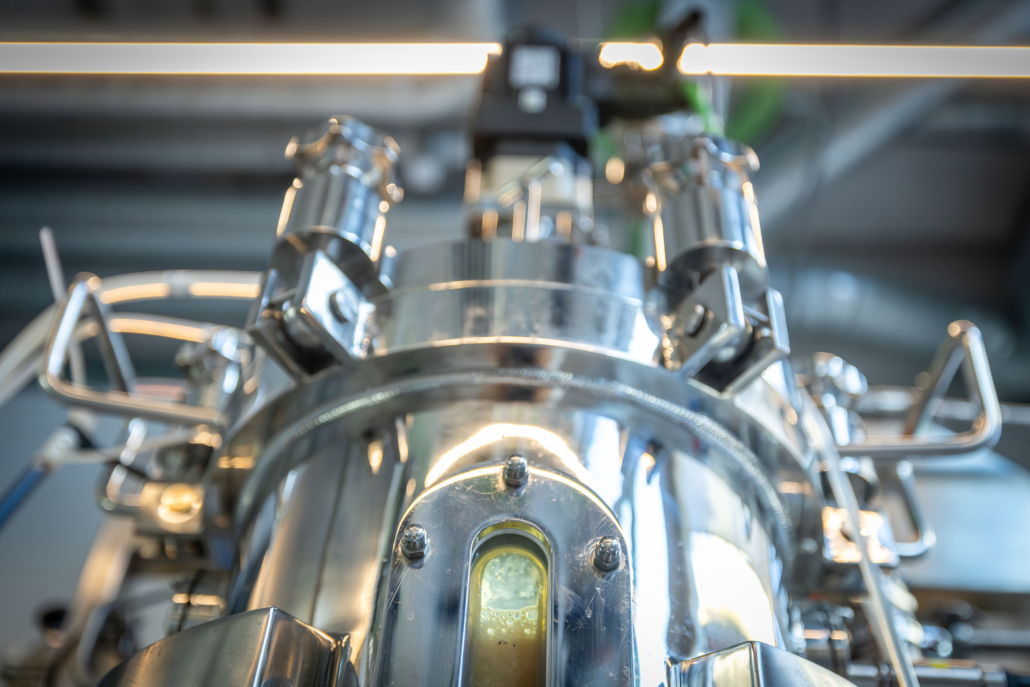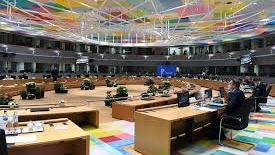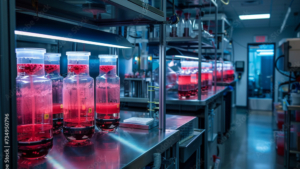
Germany boosts protein transition with €38m
The Budget Committee of the German Bundestag has announced to channel €38m in funding into the sustainable protein transition next year.
Germany is set to follow countries such as the Denmark, the UK and the Netherlands, which this year provided massive funding to become world leaders in the emerging plant-, cell culture- and microbial-based agriculture sector that allows climate- and animal-friendly protein production by decoupling protein production from agriculture. The Budget Committee of the German Bundestag have earmarked €38m to fund sustainable protein transition projects in 2024, members of the governiment revealed on Friday.
The adopted funding will include promoting the manufacturing and processing of plant-based, cultivated and fermented proteins, supporting a transition to plant-based farming, as well as opening a “Proteins of the Future” centre.
Ivo Rzegotta, Senior Public Affairs Manager Germany at Good Food Institute (GFI) Europe, welcomes this ground-breaking decision which is part of Germany’s nutrition strategy: With this decision on the protein transition, the coalition is taking a big step towards the transition to a sustainable food system laid out in the coalition agreement. The agreed funding measures for research and transformation will put Germany on the path to becoming a leader in this emerging field. The announced Competence Centre Proteins of the Future offers the opportunity for work on alternative protein sources in Germany to be better coordinated and aligned with a strategic goal in future. Germany needs a roadmap for the transition towards more alternative protein sources and such a centre can be the first step in developing such a strategy with all relevant departments and stakeholders,” he said.
So far, in Germany, there have been isolated funding measures in this emerging market though ambitious companies in the field. The Federal Ministry of Agriculture has been funding projects on alternative proteins, including research into cultivated fish, which is developed by companies such as Hamburg-based Bluu GmbH. The Federal Research Ministry has been funding projects in the NewFoodSystem innovation area and the Cellzero Meat project. The Federal Ministry for Economic Affairs and Energy is supporting near-market projects in scaling up with its Industrial Bioeconomy funding programme. There are also other small projects at federal and state level.
However, according to a study by the Fraunhofer Institute for Systems and Innovation Research (ISI) from June 2023, the funding measures in Germany have so far tended to be uncoordinated individual measures that do not follow a coherent overall strategy for the development of the sector and are also significantly lower than in other countries. Company leaders welcomed the initiative but also made clear that it was a drop on the hot stone. “At Lovely Day Foods, we view the German government’s €38m investment in the protein transition as a very positive signal. However, realising the full potential of alternative proteins will require a more substantial funding increase in the future,” the egg protein maker’s CEO, Tanja Bogumil, told European Biotechnology. “Equally important is the need for an unbureaucratic and swift distribution of these funds, ensuring timely and effective allocation to areas where they are most critically needed.”
In April 2022, the Netherlands has made a record investment of €60m to develop an ecosystem for cultivated meat and precision fermentation. Denmark has presented the world’s first strategy for the plant-based sector and announced that it will invest the equivalent of €168m in the sector. The UK has announced that it will set up a research centre for alternative proteins and is also investing in the sector. France has invested €65m research and scaling up the plant-based sector. With the investments now announced in the 2024 federal budget, Germany is joining the group of countries that aim to boost the multi-billion euro sector.
Pooling activities in a new Centre of Excellence could now make it possible to bundle and strategically realign the previously rather scattered activities so that Germany can exploit the potential of alternative proteins for climate, environmental protection and public health and position itself as a strong innovation location in this sector. A first step for th planned new centre should be the development of a comprehensive roadmap for the protein transition that defines measurable goals for the development of the sector and sets out what needs to be done on the part of industry and politics to position Germany at the forefront by 2030. The roadmap should bundle all relevant aspects of the topic into a comprehensive overall strategy: the definition of research priorities, the coordination of public research funding, the support of companies with regulatory issues, the development of production capacities and the role of farmers in the transformation.
The goal of the German food strategy is to implement a policy framework in which German food-tech companies can rapidly start production of protein alternatives. It is still open if the German governmen will allow pre-market tastings such as The Netherlands did, and Switzerland and the UK are to allow soon, to speed up development of the novel protein foods though a very lengthy EU authorization process of 18 to 48 months. For comparison, market authorisation in Singapore or the US takes significantly less than 12 months. Thus, German companies, such as Berlin-based Formo Bio GmbH, will authorise its first cheese product made by precision fermentation in Singapore next year. Other companies have already opened production plants in other countries to circumvent the politically unfavourable conditions in Germany.


 Adobe stock Photos - hkama
Adobe stock Photos - hkama  Alexandros MICHAILIDIS
Alexandros MICHAILIDIS adobe stock photo - JR-50
adobe stock photo - JR-50